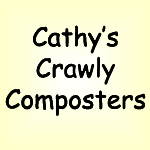Composting is a natural process that transforms organic waste into
a soil enhancer called humus. Kitchen scraps, leaves, and yard waste
are excellent compostable materials. Composting helps maintain a healthy,
sustainable environment.
Composting is a simple process that also helps the environment. Successful
composting is as easy as adding layers. Composting requires a carbon:nitrogen
mix, moisture and air circulation. Add a layer of brown material (carbon
comes from dried leaves, brown grass or even shredded paper), then add
a layer of green material (nitrogen comes from fruit/vegetable scraps,
plant cuttings). The pile should be aerated or turned once a week to
allow air to circulate. Water may be required to ensure that the pile
remains moist. If the compost pile dries out, all activity stops. If
possible, place composter in a sunny location.
Composting has many benefits:
- Reduces the volume of material going to landfill.
- Recovers a valuable resource. Estimated 1/3 of the total waste stream
can be composted!
- Produces a natural soil enhancer - increased crop production!
- Reduces greenhouse gas emissions. Organics combined with landfill
material creates gas emissions.
- Reduces necessity for chemical additives - fertilizers and pesticides
- saves money.
- Returns nutrients back to the soil.
To increase the rate of composting, consider adding worms such as Red
Wigglers to the pile. These wonders of nature not only speed up the
process, they aerate the pile, and add valuable nutrients to the finished
compost. Red Wigglers eat half their weight daily in organic matter.
Therefore, 1 lb. of worms can consume 3-4 lbs. of organic matter weekly.
Vermicomposting is an excellent alternative for those that do not have
the space to do traditional backyard composting. As vermicomposting
can be practiced indoors, composting continues throughout the year.
Worms turn organic material into nutrient rich castings. Worm castings
are recognized as one of nature's finest organic fertilizers. Less dependence
on chemical fertilizers will not only save money but will also benefit
the environment.
There are three main components to successful vermicomposting: temperature,
air circulation and moisture content. The optimum temperature is between
16-26°C (60-80°F). Worm composting is an aerobic process meaning "with
oxygen", so air holes in the bin are essential. Worms are approximately
90% moisture so they require a fairly moist environment. The bedding
should be the consistency of a wrung out sponge.
Worm composting is an excellent way to get children interested in the
environment. Worms are working pets that can help your children understand
worm behaviour by seeing organic matter magically converted into soil.
Why not employ these wonderful workers who work for food scraps?
"If we used all of nature's resources except earthworms to produce
topsoil, it would take 100-150 years to produce one single inch! Bring
back the earthworms, and it only takes one year to produce that inch."
The Worm Book - Loren Nancarrow & Janet Hogan Taylor.
For more information on ways to reduce your garbage or to arrange a
demonstration visit www.cathyscomposters.com call Local: (905) 775-9495
Toll Free: 1-888-775-9495
Back to Articles


 Composting
completes the growing cycle ...
Composting
completes the growing cycle ...